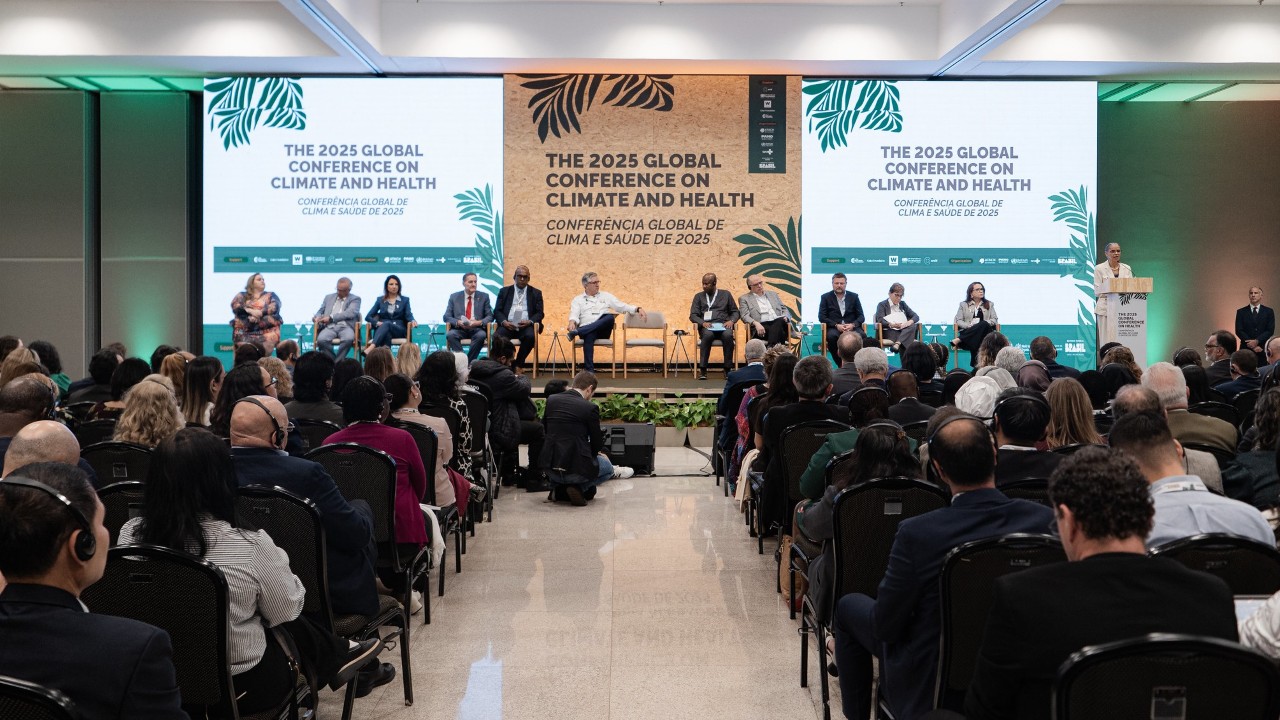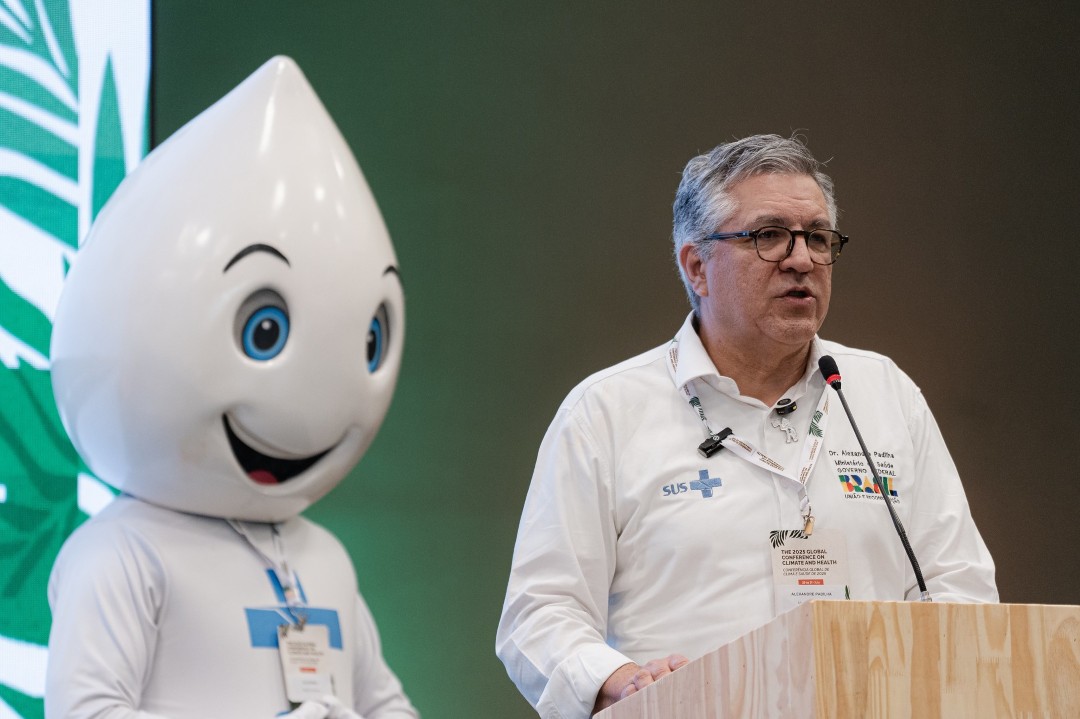Ana Toni: Brasil poised to offer solutions for climate change's health impact
In Brasilia, regional and international leaders underscore the urgent need for tangible efforts to tackle climate change's impacts on global public health

By Laura Marques / COP30
On Tuesday, July 29, during the opening of the 2025 Global Conference on Climate and Health in Brasilia, COP30 CEO Ana Toni stated that Brasil is prepared to take the lead in addressing the global health impacts of climate change. The event featured Brasil’s ministers of environment and climate change, Marina Silva, and health, Alexandre Padilha. Regional and international leaders also attended, all of whom highlighted the urgent need to address issues such as air pollution and extreme weather events.
Brasil will lead discussions toward finalizing the Belém Health Action Plan, which will be launched during COP30, according to Ms. Toni. The plan outlines strategies to adapt and strengthen health systems in response to climate-related challenges.
"The global health plan shows the world that we have solutions and that they need to be expanded and scalable, and that Brasil is a provider of solutions, in several areas; energy, agriculture, forests, but also in the health area, where people don't have much knowledge. It's a great opportunity for us to put adaptation at the heart of the COP, which is what we want," stressed the CEO.
Minister Marina Silva pointed out that one of the most obvious impacts of climate change is the increase in deaths caused by heatwaves, which now number 500,000 worldwide. Mrs. Silva pointed out that the source of this serious problem is the increase in CO2 emissions, which mainly affects the most vulnerable populations - those who contribute the least to emissions, and who pay the highest price for them.
"Tackling the causes means reducing CO2 emissions, caused by the use of coal, oil, gas and deforestation; taking care of the health of our planet. We can't look after our health on a feverish planet"
— Marina Silva, Brasil’s ministers of environment and climate change
For his part, Minister of Health Alexandre Padilha noted the increase in chikungunya fever cases in Europe and the spread of dengue fever in the Americas as examples of the impact of climate change on health, underscoring the need to reduce CO2 emissions. Mr. Padilha also emphasized the link between rising temperatures and an increase in respiratory diseases, dehydration, and cardiovascular issues.

"Health brings this data to show the world and world leaders that we need to address the causes of climate change," he said. Mr. Padilha explained that Brasil already implements the guidelines of the Belém Plan and will defend the document during COP30.
Financing
At the ceremony, Youssef Nassef, the Director for Adaptation of the United Nations Framework Convention on Climate Change (UNFCCC), drew attention to the insufficient funding for adapting the health sector and emphasized the need to address this issue.
Mr. Tedros Adhanom, the director-general of the World Health Organization (WHO), who participated in the conference via video, thanked Brasil for its leadership in addressing the issue. He noted that recent heat waves in Southern Europe and floods in Texas (USA) and Pakistan demonstrate the pressure that health systems face from climate change. The WHO representative also stressed the importance of the Belém Plan in making health systems more resilient, particularly for vulnerable populations.
Mr. Jarbas Barbosa, the director of the Pan American Health Organization (PAHO), said that the organization is ready to implement the Belém Plan with the 35 countries of the region.
Other speakers at the opening session included Mariângela Simão, Secretary of Health and Environmental Surveillance for Brasil’s Ministry of Health; the Charge Affairs at the Spanish Embassy in Brasil, Juan José Escobar Stemmann; Tony Kay, Minister Counselor at the British Embassy in Brasil; Ratu Atonio Rabici Lalabalavu, Fiji’s Minister for Health and Medical Services; Ibrahima Sy, Senegal’s Minister of Health and Social Action; Tania Mara Coelho, president of the National Council of Health Secretariat (Conselho Nacional de Secretários de Saúde/CONASS), Tania Mara Coelho; and Fernanda Magano, of the National Health Council (Conselho Nacional de Saúde/CNS).
Global Conference
Organized by the Government of Brasil, WHO, and PAHO, the conference gathers leaders from around the world to discuss the pivotal role of equitable and ambitious climate action in promoting global health. The event concludes on July 31.
The conference also serves as the annual meeting of the Alliance for Transformative Action on Climate and Health (ATACH), an initiative created following COP26 to help build sustainable, climate-resilient health systems through the collective action of WHO Member States and stakeholders.
English version: Trad. Bárbara Menezes
Proofreading by Enrique Villamil
